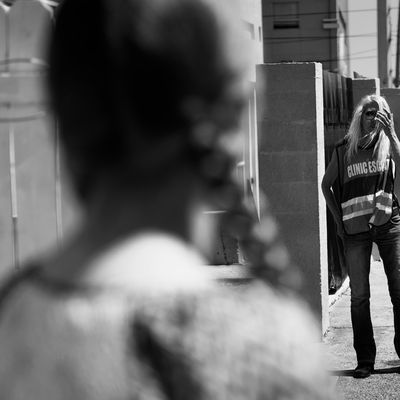
A federal judge struck down Mississippi’s law banning abortion after 15 weeks in a ruling that was delivered Tuesday. The law is one of the most restrictive in the country, and women’s health activists across the country opposed it.
The abortion ban, which began as House Bill 1510, was signed into law in March by Republican governor Phil Bryant, who once gave a speech stating that it was his goal to “end abortion” in the state. It banned nearly all abortions after 15 weeks. Immediately, Mississippi’s only abortion clinic sued the state, in a suit filed with the Center for Reproductive rights.
“The record is clear: States may not ban abortions prior to viability,” said U.S. District Judge Carlton Reeves in his ruling striking down the ban. The rest of his opinion was blistering, laying bare the hypocrisies at the heart of abortion restrictions that claim to be concerned with women’s health.
The state of Mississippi insists that the 15-week ban “was passed in furtherance of the State’s legitimate interest in protecting the health of women,” Judge Reeves wrote. But, given the sobering reality of maternal care in the state, “the Court concludes that the Mississippi Legislature’s professed interest in ‘women’s health’ is pure gaslighting.”
“The State ‘ranks as the state with the most [medical] challenges for women, infants, and children’ but is silent on expanding Medicaid,” he continued, citing a Newsweek article from earlier this year. “Its leaders are proud to challenge Roe but choose not to lift a finger to address the tragedies lurking on the other side of the delivery room: our alarming infant and maternal mortality rates.”
Judge Reeves also chastised the state of Mississippi for wasting taxpayer money by passing a law that has already been ruled unconstitutional. “The real reason we are here is simple,” he wrote. “The State chose to pass a law it knew was unconstitutional to endorse a decades-long campaign, fueled by national interest groups, to ask the Supreme Court to overturn Roe v. Wade.” He concluded the opinion by writing that men deciding the fate of women’s right to reproductive health is a “sad irony.”
The fact that men, myself included, are determining how women may choose to manage their reproductive health is a sad irony not lost on the Court. As Sarah Weddington argued to the nine men on the Supreme Court in 1971 when representing ‘Jane Roe,’ ‘a pregnancy to a woman is perhaps one of the most determinative aspects of her life.’ As a man, who cannot get pregnant or seek an abortion, I can only imagine the anxiety and turmoil a woman might experience when she decides whether to terminate her pregnancy through an abortion. Respecting her autonomy demands that this statute be enjoined.
The ruling is an important success for women’s reproductive rights activists: HB 1510’s failure means that a similar law in Louisiana passed in May will not go into effect, according to the Center for Reproductive Rights.
“Our victory today means that women in Mississippi will maintain the ability to make their own decisions about whether and when to terminate a pregnancy,” said Nancy Northup, CEO of the center, in a statement posted the organization’s website. “Today’s decision should be a wake-up call for state lawmakers who are continuously trying to chip away at abortion access. Such bans will not stand in a court of law.”




